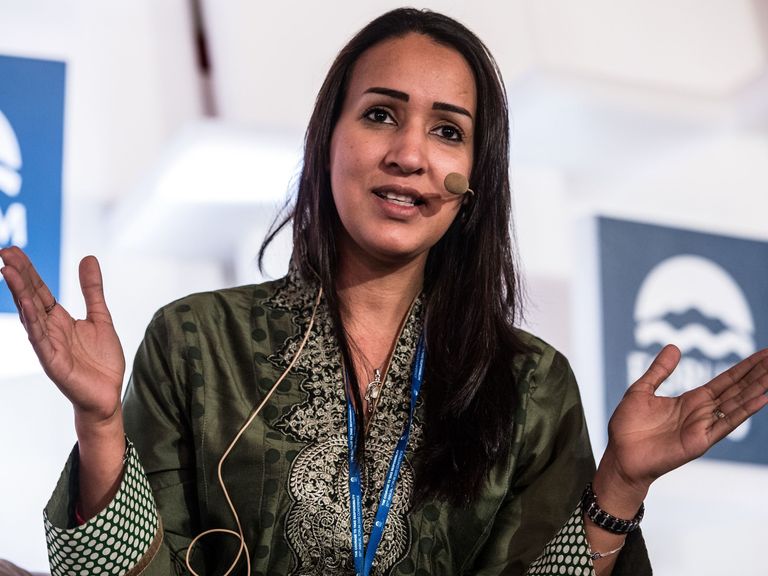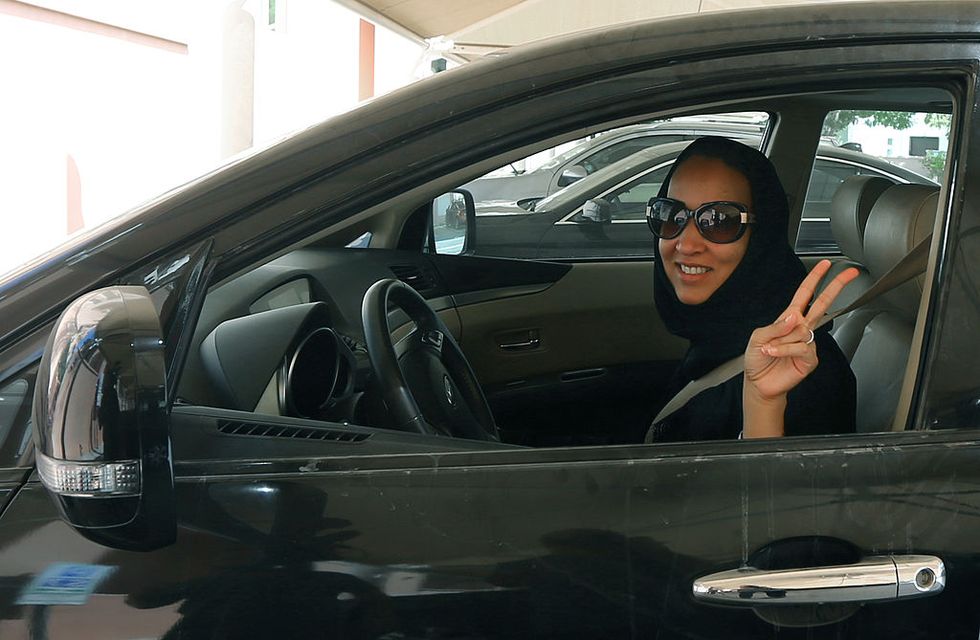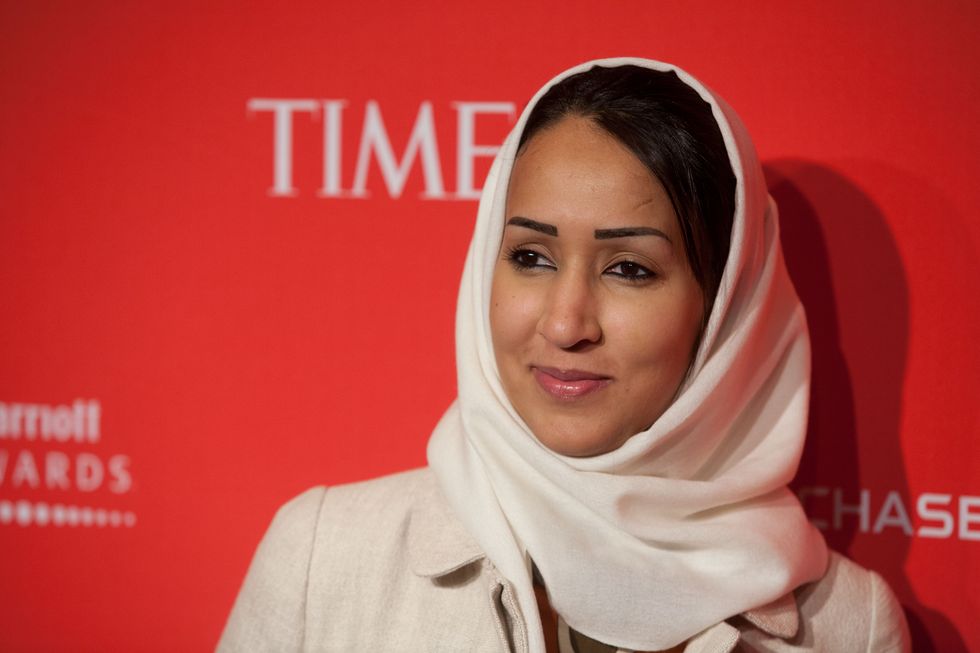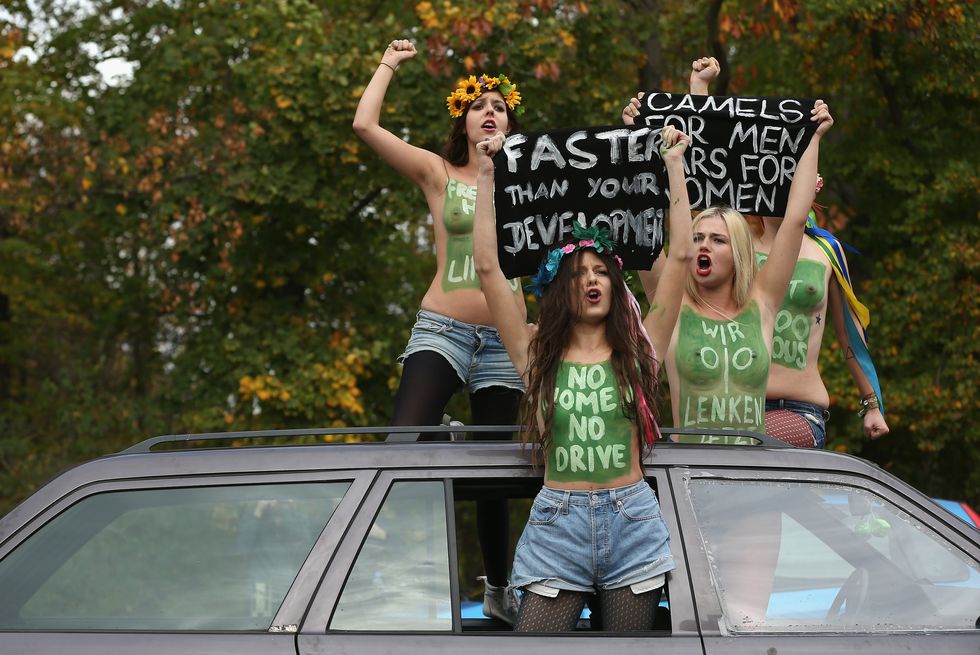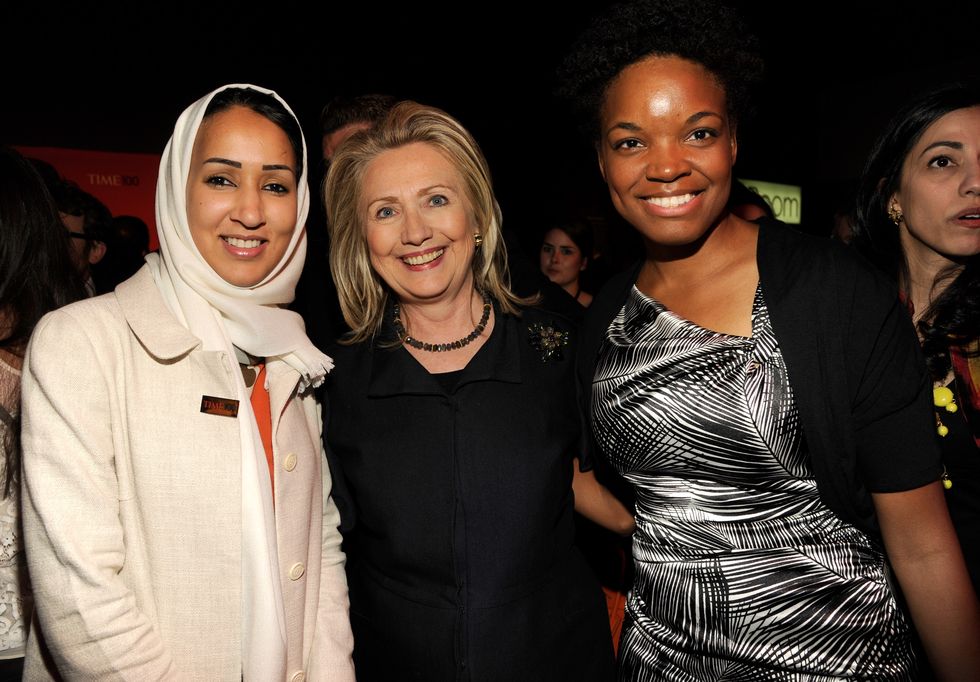In my country [Saudi Arabia], most women don't know how to drive. They don't have a driving licence, they don't own a car. It's a patriarchal society: women are expected to stay at home and look after the men in their family.
However, my mother was tough and insisted that all her children were educated. I grew up in Mecca and studied computer science at a college [King Abdulaziz University] in Jeddah. I joined Saudi Aramco, the national oil company, in 2002, and was the only woman working in internet security in the entire country at the time. Women could drive in the company's compound, which was in the desert, so I asked my brother to teach me.
I married one of my colleagues and had a son with him, but we divorced after he demanded I stopped working and went back to wearing the niqab [a face-covering veil that leaves the eyes clear]. In 2009, I left Saudi Arabia for a year and went to the US to take part in a work exchange programme. The US felt like another planet: I rented my own apartment, drove my own car and was no longer scared.
It was a culture shock when I got back to Saudi Arabia. I finally fully understood that I am discriminated against in Saudi Arabia, just because I'm a woman. Colleagues started calling me a trouble- maker. They said, 'These are the laws. You can't change them,' but we can change the laws if we speak up. It was also the time of the Arab Spring [a series of protests across the Middle East], and that made me think change was possible.
In 2011, I discovered that the 'ban' on women driving was a tradition, not a law. It made me question everything about women's rights in my country. I called for a Women2Drive Day on 17 June that year. Driving a car in public was symbolic: it declared, "We are here, and we are not afraid." More than 120,000 invitations were accepted to the event on Facebook. It was a grassroots movement; we had a lot of support from men and women, as well as resistance.
Before Women2Drive Day, I drove with my brother to test how the authorities would respond. At 2am the next morning, the secret police [the Mabahith] came to my house and arrested me – I was imprisoned for nine days. I was terrified, and shocked by how filthy the prison was; people were completely dehumanised. I didn't think I'd be thrown into prison for something that wasn't even a crime. It was frightening; when a dictatorship sends people to prison in that way – no ruling, no court case – you fear you will be forgotten there.
The international press picked up on my arrest, which embarrassed the government. There was a campaign in Italy called I Drive With Manal, and FEMEN activists from Ukraine went topless, holding signs saying, 'Camels for men, cars for women.' It showed solidarity: it was not only about Saudi Arabia, but women all over the world. Even Hillary Clinton sent her support.
Most importantly, it meant that on Women2Drive Day, about 36 women drove in public. Some drove right past the traffic police and no one was arrested because the whole world was looking at Saudi Arabia. I had become an accidental activist.
After I was arrested for driving, there was a huge campaign to shame me in the local media. I was denounced in Friday sermons [the weekly address in a mosque], which was hard on my family: my father had to listen to a whole sermon about Manal al-Sharif and the prostitutes that want to drive cars. What I didn't know was that my family would be involved in getting me out of jail, and my father had even gone to see our ruler, King Abdullah.
I no longer live in Saudi Arabia. I can't. I lost my job when, against my employer's will, I attended a conference about women's rights in Norway. I've since moved to Australia and remarried. The Saudi government won't give my husband and our son a visa, so my two boys, Abdalla and Daniel Hamza [who is still with his father in Saudi Arabia], have never met. Being separated from my child is the most difficult part of not living in my home country.
Women2Drive activists continued to drive and campaign until 2014. Then I had a court case in an attempt to secure my son's right to visit me, and my lawyer told me to stop talking, so I had to shy away from the public sphere. Now, I'm slowly returning to activism and I know my memoir will be controversial. All the Arabic publishers rejected it, which shows how difficult it is to speak up in the Middle East.
I won't be silenced. The late American activist Rosa Parks and the US civil rights movement have been a constant inspiration. When I was growing up, there was a mentality that we were not to question, discuss or argue, that you should just accept what the authorities tell you. But that is changing: with social media, they cannot do whatever they want and get away with it anymore.
This originally appear in the July issue of ELLE.
'Daring to Drive: A Saudi Woman's Awakening' by Manal al-Sharif (Simon & Schuster) is out now
